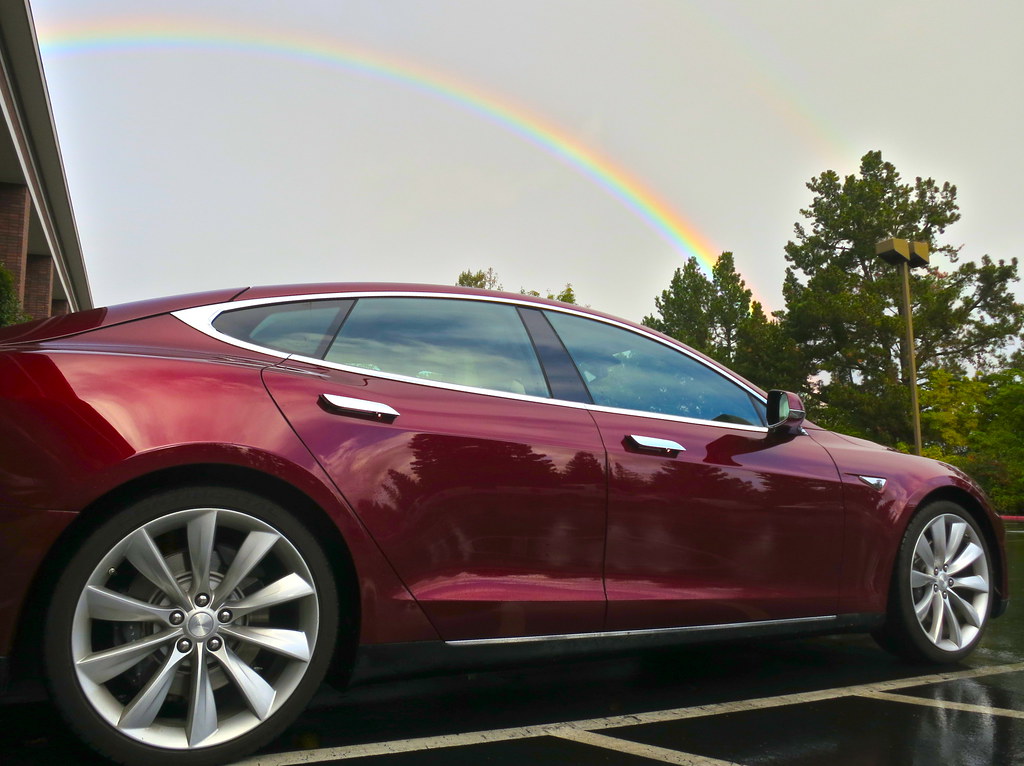Electric cars have long been seen as a luxury option for eco-conscious drivers, but that may soon change. According to a recent report by CarEdge, the average price of an electric car in the US has dropped by 25% over the past year, from $67,000 to $50,000. This trend is expected to continue, as battery technology improves, mass market models become more available, and competition heats up among automakers.
What are the factors behind this price drop, and how will it affect the consumers and the industry? In this article, we will explore the reasons and implications of the falling electric car prices, and what you need to know before you buy one.
Tesla’s Price Cuts
One of the main drivers of the price drop is Tesla, the leading electric car maker in the US. Tesla has been slashing the prices of its models, such as the Model 3, Model S, and Model Y, in order to boost sales and market share. According to savagegeese, a car reviewer and critic, Tesla’s strategy is to ‘flood the market with cheap EVs and force other manufacturers to lower their prices or lose customers.’
Tesla’s price cuts have also been influenced by the expiration of the federal tax credit for electric car buyers, which was phased out for Tesla vehicles in 2019. The tax credit, which offered up to $7,500 in savings, was a major incentive for consumers to buy electric cars. Without it, Tesla had to lower its prices to remain competitive and attractive.

Battery Advancements
Another factor that contributes to the price drop is the improvement of battery technology, which is the most expensive and crucial component of an electric car. Battery costs have been declining steadily over the years, as the technology becomes more efficient, durable, and scalable. According to BloombergNEF, the average cost of a battery pack has fallen by 89% since 2010, from $1,100 per kilowatt-hour to $137 in 2020. The cost is expected to drop below $100 by 2023, which is considered the tipping point for electric cars to become cheaper than gasoline cars.
Battery advancements also mean that electric cars can offer longer range, faster charging, and better performance, which are some of the main concerns for potential buyers. For example, the Tesla Model 3 can travel up to 353 miles on a single charge, and can be recharged in as little as 15 minutes at a Supercharger station. These features make electric cars more convenient and appealing to consumers, who may have been deterred by the ‘range anxiety’ and ‘charging hassle’ of the past.

Mass Market Models
A third factor that influences the price drop is the availability of mass market models, which are designed to appeal to the average consumer with affordable prices and practical features. These models are different from the luxury and niche models that dominated the electric car market in the past, such as the Tesla Model S and the Chevrolet Bolt. Mass market models aim to offer a similar or better driving experience than gasoline cars, without compromising on quality or comfort.
Some examples of mass market models are the Tesla Model 3, which starts at $37,990, the Hyundai Kona Electric, which starts at $37,190, and the Ford Mustang Mach-E, which starts at $42,895. These models are comparable or cheaper than their gasoline counterparts, and offer similar or better performance, efficiency, and reliability. They also come with various features and options, such as advanced safety systems, infotainment systems, and all-wheel drive, that cater to the preferences and needs of different consumers.

Market Competition
A final factor that affects the price drop is the market competition, which is heating up among automakers, both traditional and new. As the demand and popularity of electric cars grow, more automakers are entering the market with their own models, or expanding their existing lineups. This creates more choices and options for consumers, and also puts pressure on the automakers to lower their prices or offer more value to attract and retain customers.
Some of the automakers that are competing in the electric car market are Volkswagen, which plans to launch 70 electric models by 2030, General Motors, which plans to offer 30 electric models by 2025, and Toyota, which plans to introduce 15 electric models by 2025. These automakers are investing billions of dollars in research and development, production, and marketing, to catch up with or surpass Tesla, which still holds the largest market share in the US. They are also collaborating with each other, or with tech companies, to leverage their strengths and resources.

What It Means for You
The falling electric car prices have significant implications for consumers, who may be considering buying or switching to an electric car. Here are some of the benefits and challenges that you may face as a result of the price drop:
Benefits:
Save money on the upfront cost of buying an electric car, as well as on the maintenance and fuel costs over time. Electric cars have fewer moving parts and require less service than gasoline cars, and electricity is cheaper and cleaner than gasoline. According to CarEdge, the average annual savings for owning an electric car over a gasoline car is $632.
Enjoy a better driving experience with an electric car, as it offers smoother acceleration, quieter operation, and more responsive handling than a gasoline car. Electric cars also have more advanced and innovative features, such as regenerative braking, wireless charging, and autonomous driving, that enhance your comfort and convenience.
Contribute to the environment and society by driving an electric car, as it reduces greenhouse gas emissions, air pollution, and noise pollution, compared to a gasoline car. Electric cars also support the transition to renewable energy sources, such as solar and wind, which are more sustainable and secure than fossil fuels.

Challenges:
Face some difficulties or limitations with the charging infrastructure, availability, and compatibility of electric cars, depending on where you live and travel. Although the charging network is expanding and improving, it is still not as widespread or convenient as the gasoline station network. You may also encounter issues with the compatibility and standardization of charging plugs, adapters, and stations, which vary by region and manufacturer.
Deal with some uncertainties and risks with the battery life, warranty, and resale value of electric cars, as they are still relatively new and evolving technologies. Although the batteries are becoming more durable and reliable, they still degrade over time and lose capacity and range. The warranty and coverage of the batteries also differ by manufacturer and model, and may not be transferable or extendable. The resale value of electric cars is also uncertain and volatile, as it depends on the supply and demand, technology, and regulation of the market.
Electric car prices are dropping and are expected to continue to do so, as a result of various factors, such as Tesla’s price cuts, battery advancements, mass market models, and market competition. This trend has positive and negative implications for consumers, who may be interested in buying or switching to an electric car. Electric cars offer many benefits, such as lower costs, better performance, and environmental impact, but also pose some challenges, such as charging issues, battery concerns, and resale uncertainty. Therefore, before you buy an electric car, you should do your research, compare your options, and weigh the pros and cons, to make the best decision for yourself.
Related posts:
The Average Price of an Electric Car Keeps Dropping (2024 Update …
Electric car prices could be about to plummet – here’s why
The Average Price of an Electric Car Keeps Dropping (2024 Update …





